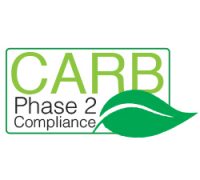FAQs
What are WE Cork’s Terms & Conditions?
How does cork flooring compare to carpet?
What are floating cork tile options and how can they be used?
How can Corkoleum cork rolls be used?
How Does Humidity Affect Cork Flooring?
How do I choose the best cork underlayment?
How do I choose the best cork flooring?
What are the steps for refinishing a cork floor?
How do I maintain a cork floor?
Will cork fade?
Do I need to acclimate cork flooring before installing?
Can cork floor be installed over radiant heat?
Can cork flooring be installed in a kitchen?
Can cork flooring be installed in a bathroom?
Will heavy furniture damage the floor?
Will my pets’ claws damage the floor?
What is cork?
Why should I use cork?
Can I put the cork in my basement?
What are the benefits of a cork floor?
What is WECU cork underlayment, and why should I use it?
What is your return policy?
What are WE Cork’s Terms & Conditions?
WE Cork’s Terms & Conditions cover products, orders, payment, invoices, shipments, claims and more.
How does cork flooring compare to carpet?
Cork flooring provides many natural benefits and advanatges over carpet. Our Cork Flooring vs Carpet Comparison blog article explains the similarities and differences of cork vs carpet, and offers a comparison chart.
What are floating cork tile options and how can they be used?
Cork tiles with natural cork and stone visuals are available with our Uniclic floating system, making for easy installation. Our Floating Cork Tiles – Usage & Options blog article reviews the floating cork tile patterns available, and compares its applications and other aspects with glue-down tiles.
How can Corkoleum cork rolls be used?
Water-resistant Corkoleum cork rolls are primarily installed as flooring, but they can also be used in other creative ways. Our Cork Rolls for Flooring & More – Corkoleum blog article explores the versatility of Corkoleum for commercial and residential use, and features pictures from various installations.
How Does Humidity Affect Cork Flooring?
Humidity has minimal impact on cork flooring, provided that some basic principles are understood and accounted for. Our How Does Humidity Affect Cork Flooring? blog article explains the nature of cork, and offers important installation guidelines to prevent issues related to humidity.
How do I choose the best cork underlayment?
The WE Cork underlayment portfolio includes a variety of products tailored for specific scenarios. Our Choosing the Best Cork Underlayment blog article compares underlayments, and helps clarify which one will work best for each application.
How do I choose the best cork flooring?
Although style is a major factor when selecting one our our many glue-down or floating floor colors, practical considerations are also key to choosing the best flooring option. Our Choosing the Best Cork Flooring blog article provides the information needed to make an informed flooring decision.
What are the steps for refinishing a cork floor?
A key responsibility of the floor owner will be to recognize wear. When that time comes, see our recommended steps for Refinishing Cork Flooring.
How do I maintain the cork floor?
Maintenance of Varnish and Polyurethane Matte WE Cork Flooring:
Regular Cleaning: Vacuum and/or damp mop with a mild wood floor cleaner or with a solution of one part white vinegar and four parts water. For more information, see our blog article, How to Maintain Cork Flooring
Where a more shiny appearance is desired: apply liquid polish and/or buff flooring.
DO NOT USE PRODUCTS THAT CONTAIN WAX.
Maintenance of Waxed WE Cork Flooring:
Regular cleaning: treat waxed WE Cork Flooring with waxed finish with a good quality paste wax (i.e. Butcher wax) and buff.
Heavier Cleaning: Remove old wax and dirt with a power buffing machine using 00 steel wool disc or 150-180 grit sandpaper disc or nylon screen pad. Apply several coats of wax and buff between each coat with a lamb’s wool pad.
Will cork fade?
Yes, exposure to light may cause cork to lighten. This can be minimized with windows that have been treated with a UV protectant. Exposure to direct sunlight should be avoided. For more information, see our blog article, Are Cork Flooring Colors Fade Resistant?
Do I need to acclimate a cork flooring before installing?
Glue-down flooring should always be acclimated in its room for at least three days prior to installation, meeting the temperature and humidity requirements as specified in the installation instructions. It should be removed from the box as well as the plastic packaging to allow proper acclimation. Otherwise, tiles will contract as air dries out, and seams will occur.
Acclimating is not typically required for floating floors. They should be installed directly out of the box. However, for very dry climates, we do recommend it to be on the safe side.
Can cork floor be installed over radiant heat?
WE Cork floors are suitable for use with under-floor heating. It should be pointed out that the flooring installed over in floor heating might gain moisture or dry out faster. Use of a humidifier is suggested. The surface temperature of the floor should not exceed 85 degrees Fahrenheit. In floor heat should be allowed to run 5-6 days before installation regardless of the season. The Classic Collection tiles and planks with Greenshield must be installed with an adhesive that is compatible with cork and radiant heat.
Can cork flooring be installed in a kitchen?
Yes, we recommend that the floating floors be installed AFTER the cabinets have been installed as this could “lock” that section of the floor and not allow it to expand and contract evenly. The glue-down tiles and planks can be installed before or after the cabinets.
Can cork flooring be installed in a bathroom?
We do not recommend that the floating floors be used in a bathroom application, but the glue-down tiles and planks are fine. We suggest caulking around the edge of the shower/tub and toilet. An additional coat of urethane (or wax if you have installed a wax finished floor) after installing will be helpful to seal the seams in bathroom applications.
Will heavy furniture damage the floor?
Heavy furniture can indent any floor. Cork has a memory, so once the pressure from the furniture is removed, the floor will spring back over time. It is recommended to use felt on the feet of all furniture to protect the floor’s finish as well as the use of furniture coasters to displace the weight from small areas.
Will my pets’ claws damage the floor?
Pets that are well behaved should pose no threat to your cork floor. Excessive digging and clawing however will damage any floor. The urethane or wax finish can be scratched by your pet’s claws. It is important to keep their claws trimmed to reduce the amount of scratching to the finish.
What is cork?
Cork is the bark of an oak tree known botanically as Quercus Suber. It is an evergreen, which grows in areas bordering the Mediterranean Sea.
Why should I use cork?
Cork is a unique natural product with remarkable properties unmatched by any other natural material. One cubic inch of cork consists of not less than 200 million completely enclosed air cells. These cells give cork the attributes of resilience, durability, moisture resistance, thermal insulation and acoustic insulation.
Can I put the cork in my basement?
WE Cork recommends that only the floating floor be installed in a basement or other below grade applications.
What are the benefits of a cork floor?
The benefits of cork flooring are: resilience, durability, moisture resistance, thermal and acoustic insulation. Cork by nature is hypoallergenic, antimicrobial and insect resistant.
What is WECU cork underlayment, and why should I use it?
WECU (cork underlayment – pronounced “we see you”) – WECU Soundless and Soundless+ meet typical building codes and provide superior sound control. WECU Crackless+/Silently offers stress crack isolation under ceramic tile and marble as well as sound control under laminate flooring.
WECU also acts as a thermal insulator when installed under radiant heat helping to prevent loss of heat into the subfloor below. Your radiant heat system will be economically more efficient.
What is your return policy?
Flooring may be returned within 30 days of receipt, with the following conditions: Customers must arrange for the return of material, and pay the 25% restocking fee. Upon receipt of material, WE Cork will examine to confirm that all boxes are unopened, and are in the same, new and sellable condition as when sent. Opened or damaged boxes cannot be accepted. For more information, or to confirm eligibility for a return, contact us.




